The below article is a translated version taken from a recent FMT advert, in which our Operations Director for Europe, Arjan de Rijke, discusses how modular facilities are proving to be an exceptionally versatile solution, both for stopgap requirements and longer-term planning of buildings and spaces.
Click here to read the FMT article
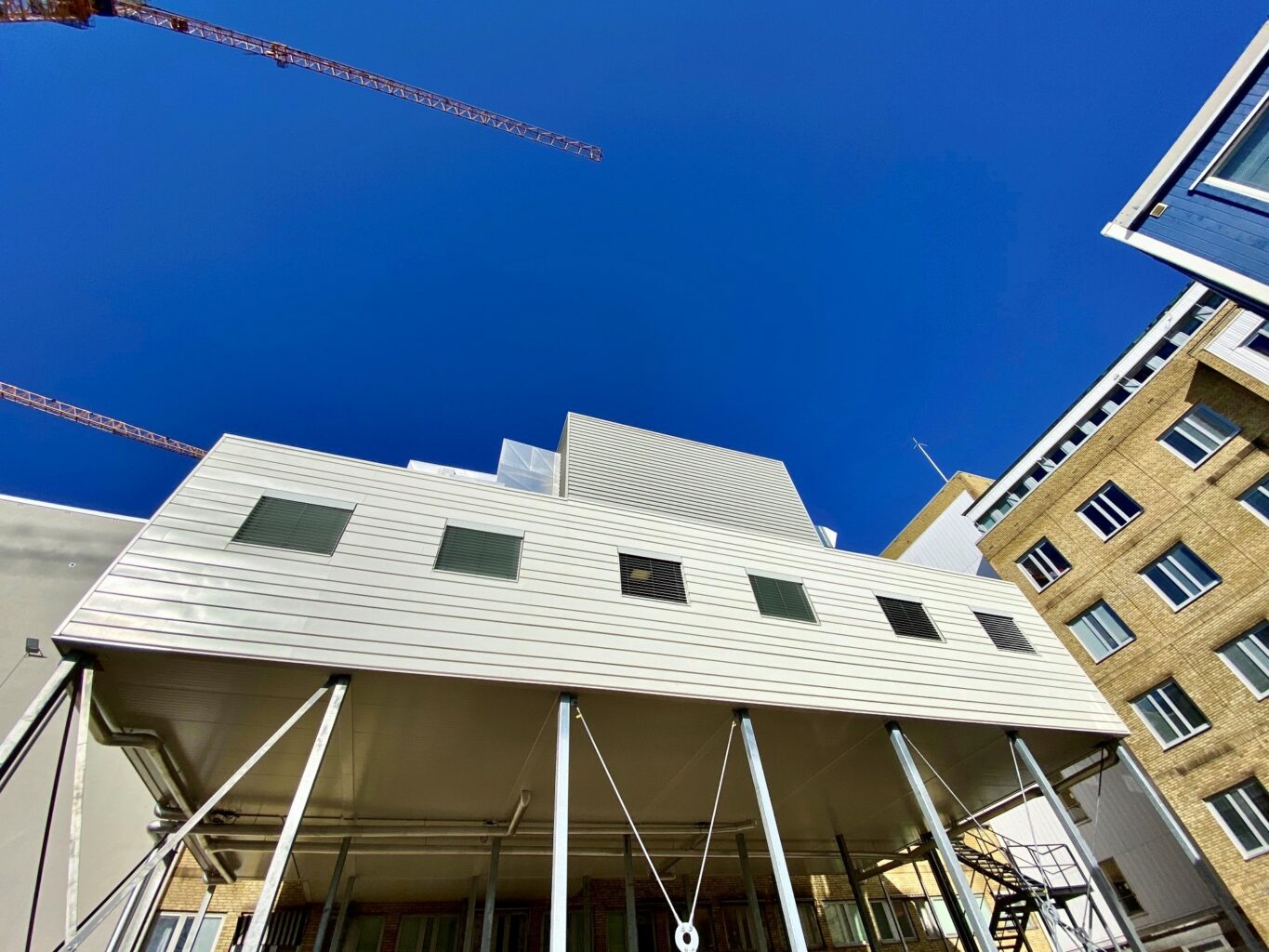
Modular off-site construction provides a range of advantages that can effectively address some of the challenges facing managers of healthcare estates. Modular facilities can be assembled swiftly due to their prefabricated nature, minimising disruption to existing facilities and augmenting patient and staff environments.
Unlike conventional construction, which can take years, modular buildings are ready for use in a matter of months, quickly addressing the need for additional medical capacity where there is a strain on existing infrastructure. They also offer versatility and speed in adapting to emerging needs, providing a degree of future-proofing and long-term relevance and value.
This was the case for Skåne University Hospital (SUS) in Malmö, Sweden’s third largest hospital and one of two national centres for cardio-thoracic surgery, which is undergoing a major, ten year construction programme. During the build, an urgent need arose for increased capacity for performing high-risk orthopaedic procedures, and the hospital’s management wanted an interim solution that would be quick to implement, while being robust enough to fill the gap until the new building was complete. A 324 m² operating room complex, delivered to strict requirements, included an ultra-clean air system, the latest surgical lights and a bespoke building management system. The interim facility was to be integrated with the existing operating room department on the third floor of the hospital to ensure a seamless extension, something that involved a precision engineered steel construction that was fixed at the exact same height as the existing facility.
The entire project was completed within just 10 months from start to finish, and while commissioned as an interim facility, the complex is designed to serve the hospital for a period of up to 10 years.
Modular facilities represent remarkably cost-effective solutions to very specific capacity problems, with streamlined manufacturing process and shorter construction timelines, for a start. There is another, and I think especially important point. Estates managers need as much control over their budgets as possible. It’s often a challenging balancing act for them as new pressures come in on what is meant to be a plannable year. However, because of the standardisation of components designed into modular solutions, there is budgetary predictability and dependability. It really is possible to get certainty with modular, right down to the last penny. What’s more, the fact that parts are in stock all of the time, means that deployment times really can be properly relied upon, guaranteeing timely and efficient implementation.
It goes without saying that continuity of service and facilities in any hospital is crucial, and one of the attractions of modular is the ease with which modular facilities can seamlessly be integrated within an existing footprint. This was the case at Kettering General Hospital, in the UK, which commissioned a modular ward at the start of the pandemic to provide a Covid-free zone. This ward facility was completed within a period of just five weeks, despite the restrictions imposed by the lockdown protocol that was in place at the time and reinforcing the nimble and rapid solution that modular is.
Modular facilities can also be tailored to specific healthcare needs, providing an opportunity to design spaces that optimise patient flow and enhance efficiency. Whether it's additional operating rooms, diagnostic centres, or outpatient clinics, modular structures can be easily customised to meet the evolving demands of NHS hospitals and health facilities. Modular assets can also be easily digitised for efficient building management, displayable on an easy-to-use, all on one page dashboard, from HVAC to utilities.
Looking at the construction and assembly of modular facilities, this also brings with it its own environmental and sustainability considerations, with each building solution incorporating eco-friendly materials and energy-efficient systems, aligning with healthcare providers’ commitment to sustainability and simultaneously providing efficient and accessible services.
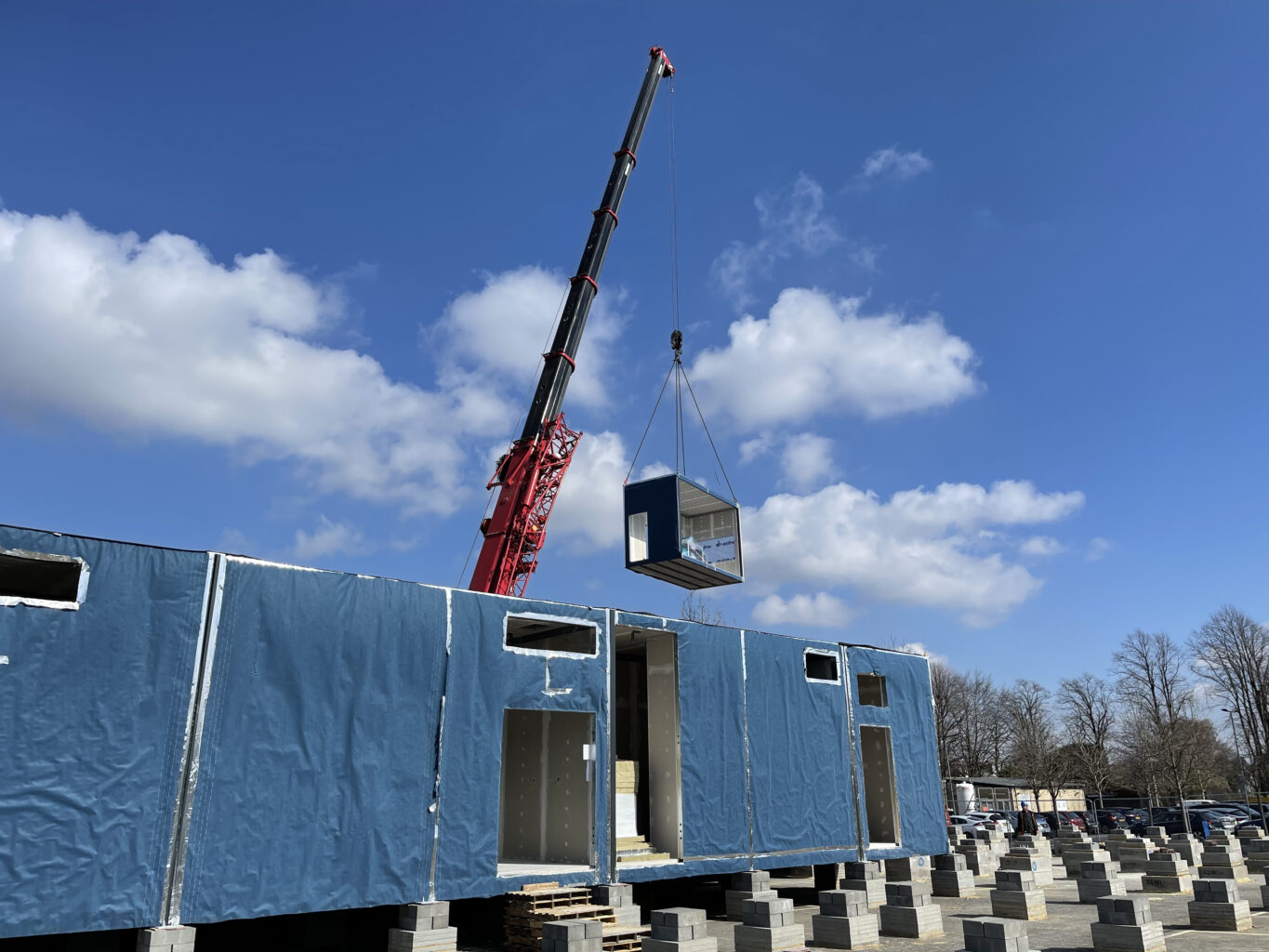
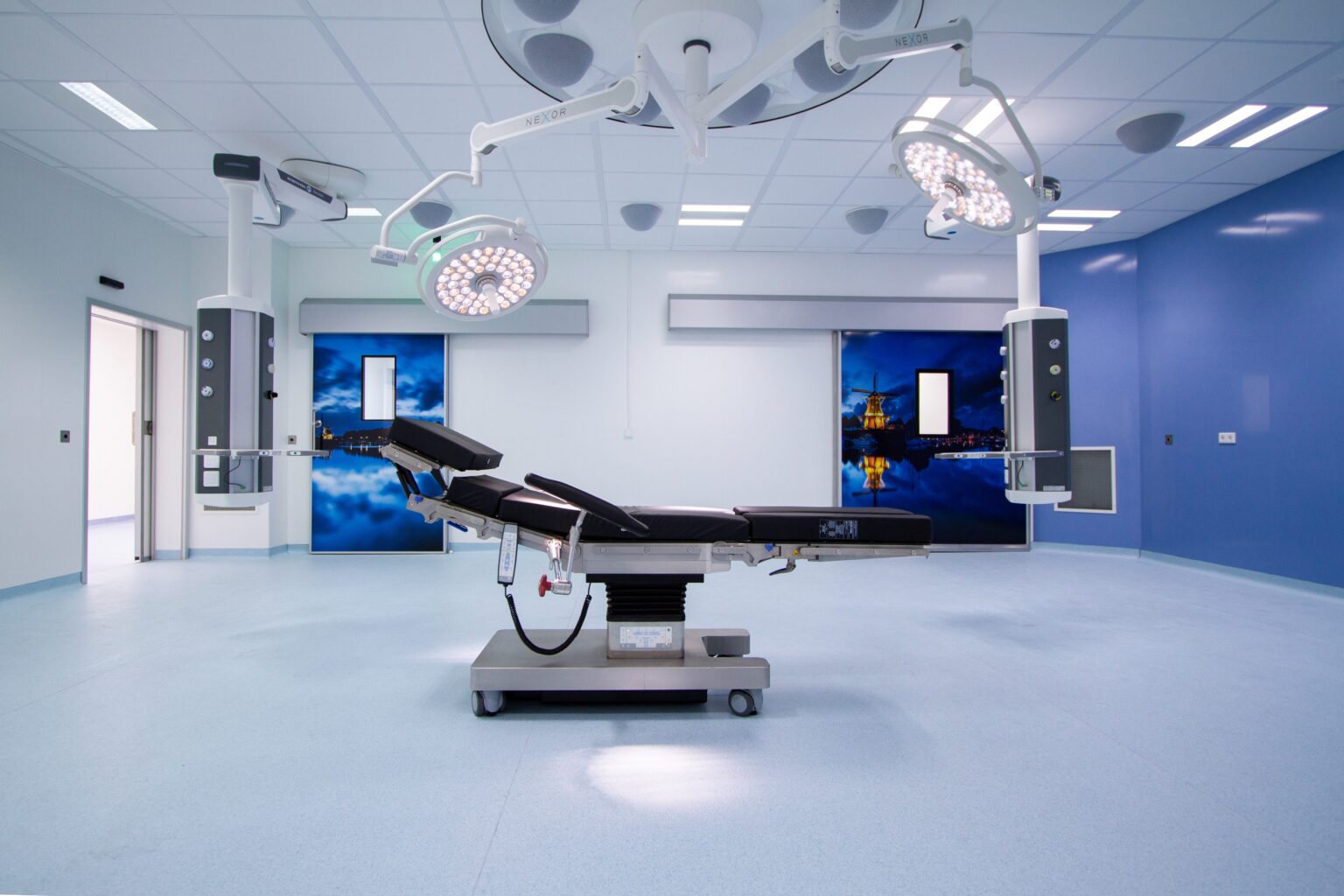
Modular structures are flexible enough to accommodate different clinical settings, equipment and technologies. The earlier in the specification process that estates managers, together with their clinical colleagues are able to experience the proposed design of their facility, the greater the likelihood of the constructed facility matching their needs and their expectations. In July, at its manufacturing facility in Nieuwegein, Q-bital Healthcare Solutions launched a unique, interactive test facility to help healthcare professionals create modular buildings that best meet their specific needs. Believed to be the only one of its kind in Europe, the Q-bital Configurable Operating room Test Facility offers an interactive way for hospital teams to experiment with, and experience, how clinical modular buildings can be configured before final design, build and delivery.
Customers have told us that being able to see how our modular facilities can be configured to meet their particular needs, has been incredibly helpful. The centre includes a realistic
operating room which provides an authentic space where teams can gain a true understanding of the configurations, equipment setups, and procedural workflows which can be created in a modular healthcare space. The test centre also allows surgical procedures to be simulated and tested in a controlled environment to best understand the impact of layout, equipment location, and ventilation systems on outcomes and efficiency.
The investment in this test centre is one of the many ways in which, as a company working exclusively in the healthcare sector, Q-bital Healthcare Solutions is able to help healthcare providers create the very best possible environments in which to deliver excellent patient care.
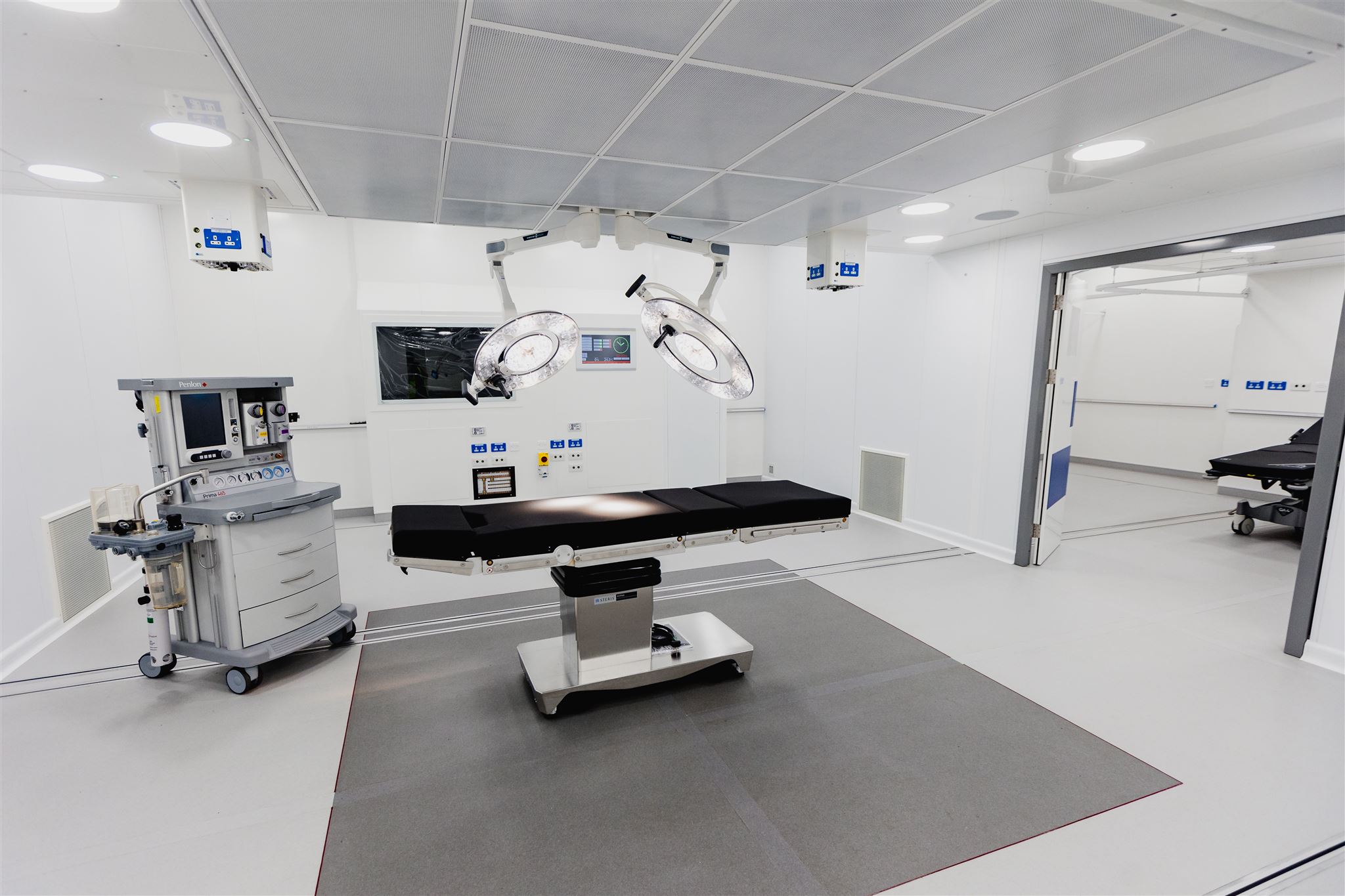
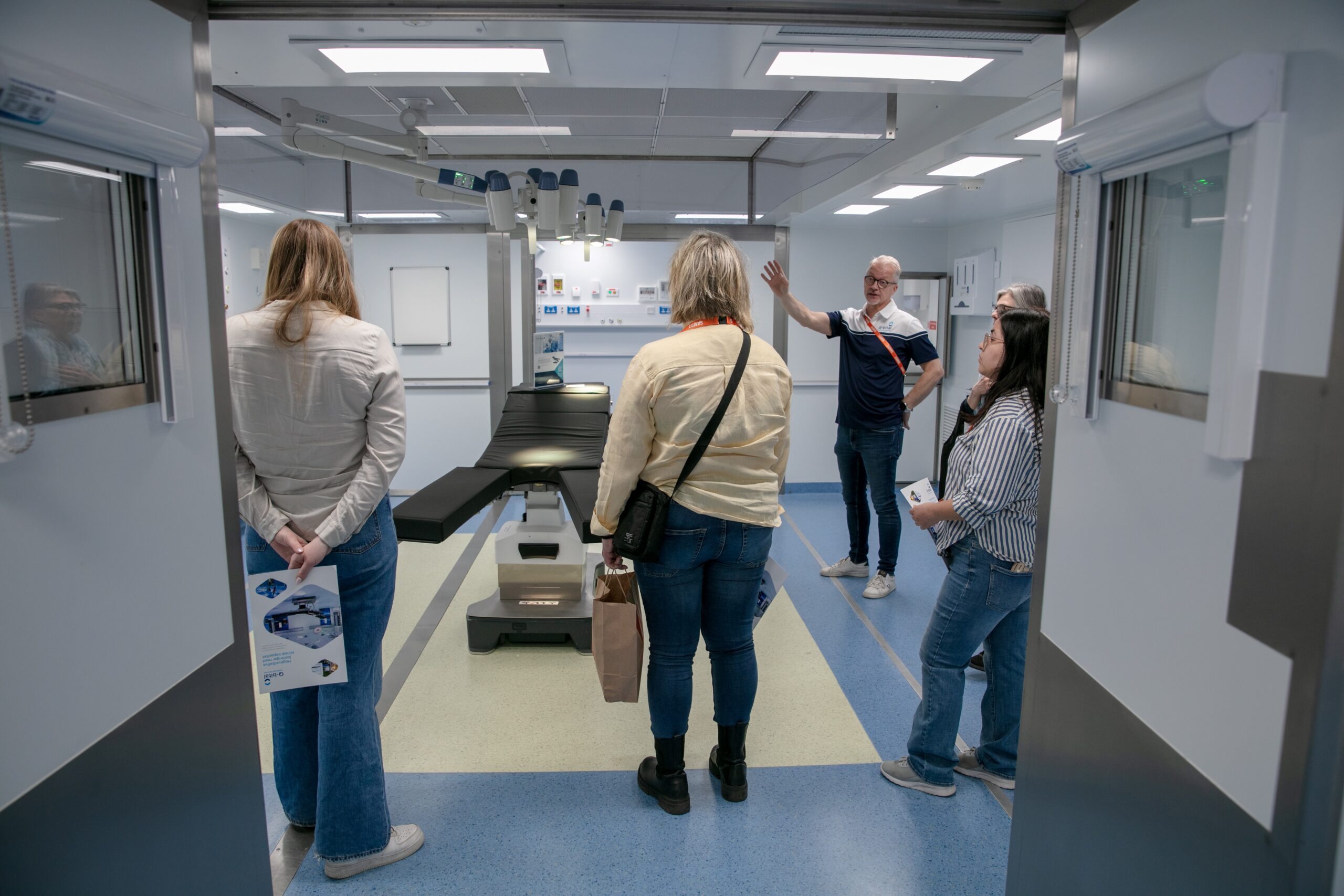
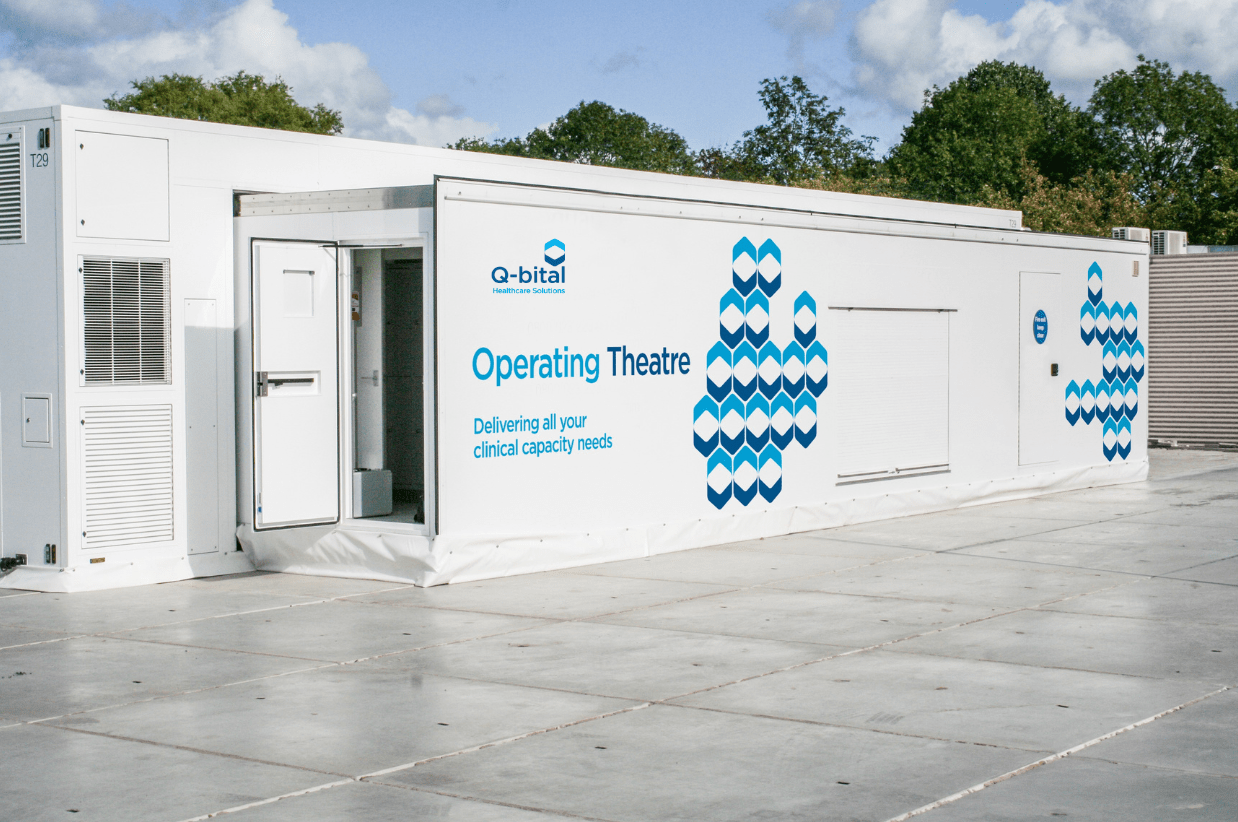
Q-bital Healthcare Solutions
Unit 1144 Regent Court, The Square, Gloucester Business Park, Gloucester, GL3 4AD
